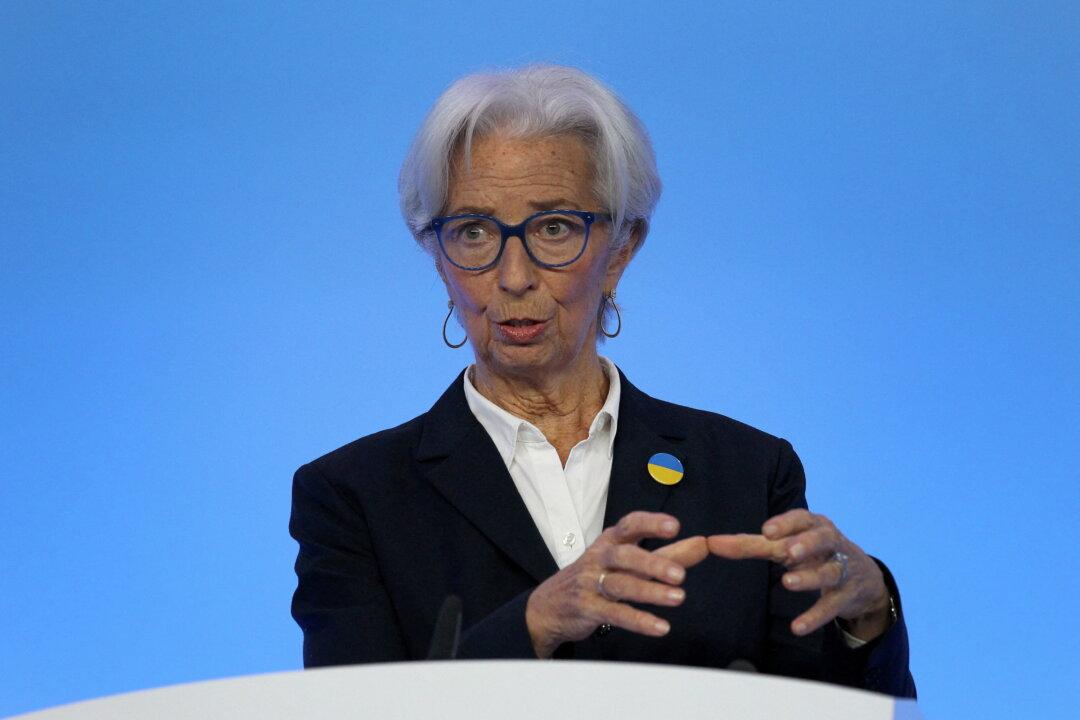FRANKFURT—Eurozone inflation has not peaked and it risks turning out even higher than currently expected, European Central Bank President Christine Lagarde said on Monday, hinting at a series of interest rate hikes ahead.
Her comments, along with remarks by Dutch central bank chief Klaas Knot earlier, were likely to dampen speculation that the ECB was about to take a gentler path with future rate increases.





